After several hours in the Swanson family home, Midwife Moira Weitz crouched at the edge of the bed in the main bedroom. Weitz was advising soon-to-be father James Swanson on how to catch his baby while another midwife supported Megan Swanson through her final contractions.
Once the healthy baby boy was born, Weitz’s counterpart, Allie Kubik, left to take care of the paperwork and check the vitals of the newborn. Weitz turned her attention to Megan Swanson, helping the mother start to deliver the placenta, and bringing ingredients from her garden to help control postpartum bleeding and discomfort.
Weitz delivered all of her children using a midwife and, after her fourth child, she started to look into the process of becoming a midwife herself. Weitz shadowed her own midwife at multiple births and was inspired to work toward her certification.
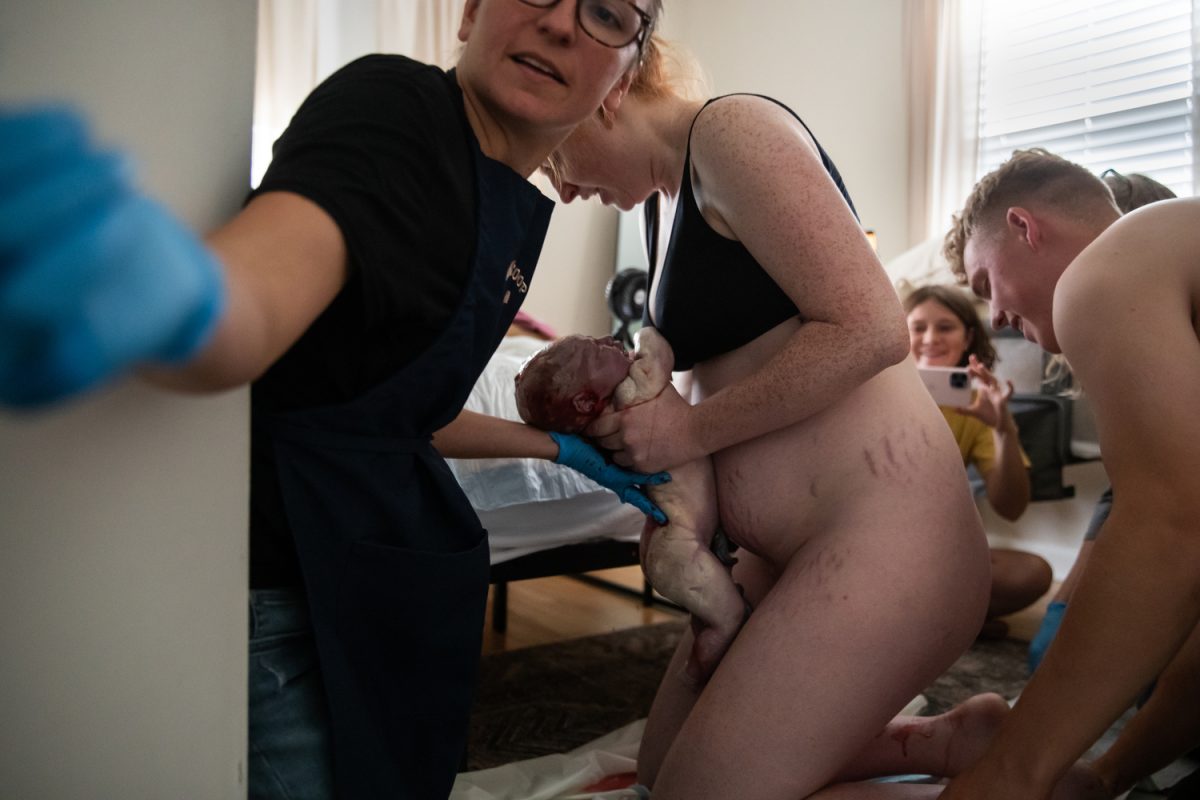
After becoming certified, Weitz and Kubik started their own practice, Rooted in Love Midwifery, which has seen an increase in workload in recent years as communities across Iowa have lost access to maternity care.
In August, the national nonprofit organization March of Dimes — dedicated to improving the health of mothers and babies in the U.S. — released a report designating a third of Iowa’s counties as maternity care deserts, meaning they have no obstetrics and gynecology services or birthing hospitals.
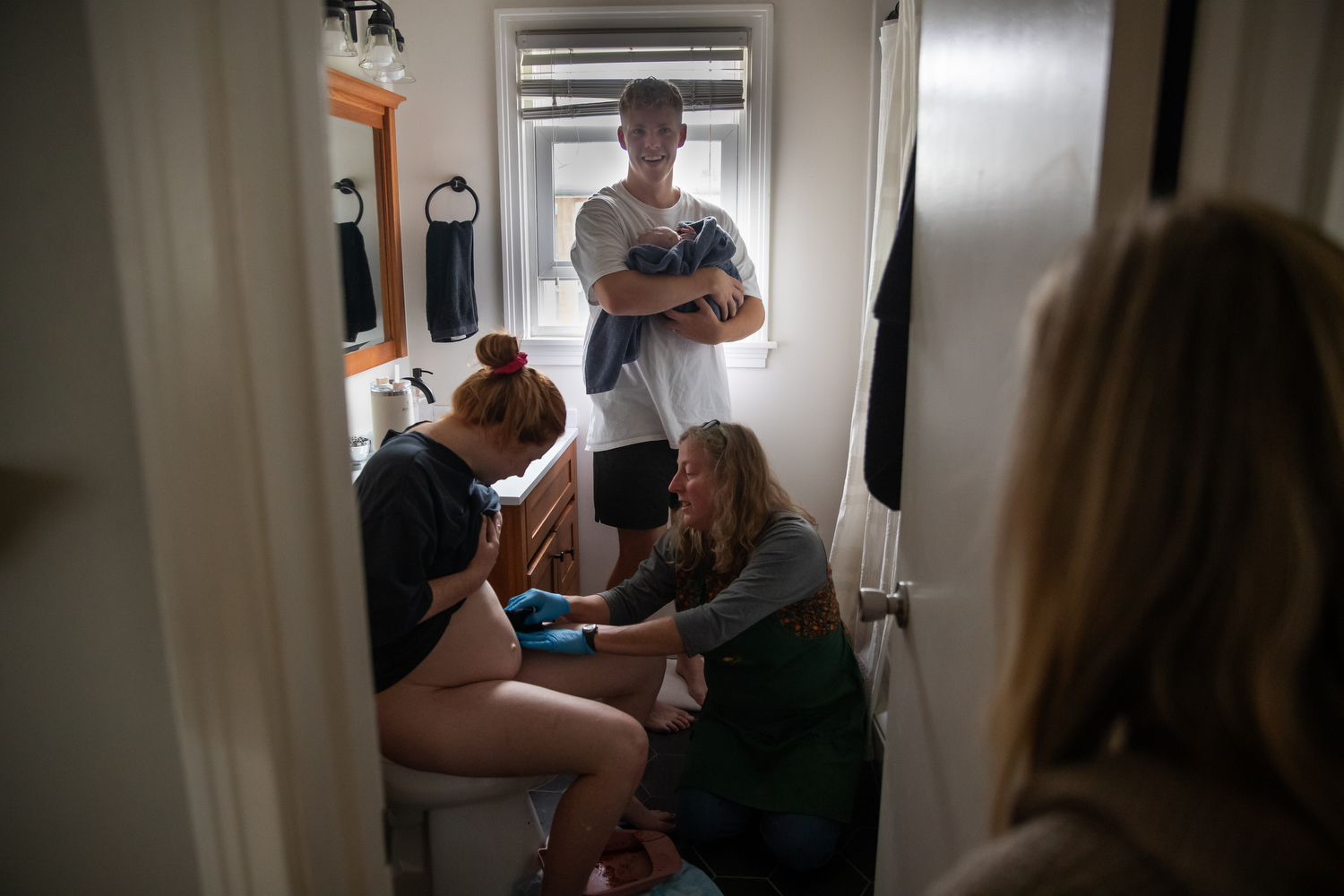
Weitz’s career
Weitz has been a practicing midwife for 19 years.
In 2005, Weitz started an apprenticeship, working to become a primary midwife. Seven years later she became a Certified Professional Midwife through the North American Registry of Midwives, the licensing board for CPMs that utilizes a Portfolio Evaluation Process and skills testing.

Weitz practiced midwifery for six years before she felt called to go back to school and pursue a degree in nursing. She first attended Kirkwood Community College in 2017 to get an Associate of Science degree while working as a labor and delivery nurse.
In 2019, Weitz left the state and earned a Bachelor of Science in Nursing from the University of Cincinnati, and in May 2023, a Master of Science from Bethel University.
While working in labor and delivery, Weitz met her business partner, Kubik. At the time, Kubik was a labor and delivery nurse working toward her Certified Nurse Midwife license. After discovering Kubik’s interest in midwifery, Weitz invited her to attend a birth. Kubik fell in love with the practice.
The two Certified Nurse Midwives created Rooted in Love Midwifery, a midwifery practice serving people in and around the Cedar Rapids area. The practice previously served a 40-mile radius but has moved toward a tighter margin in recent years as demand has grown.
Weitz and Kuik work primarily in home birth but offer additional services, including prenatal care, newborn care, and women’s health care starting at puberty.

Iowa’s maternal care desert
The care disparity in Iowa is largely credited to hospital closures after depopulation in rural communities, which was worsened by the COVID-19 pandemic. Between 2020-21, eight Iowa hospitals saw the closure of their labor and delivery units, and 40 more were at risk of total closure in 2022 due to low or non-existent financial reserves, and a negative financial margin over three years.
According to March of Dimes, the farther a woman travels to receive maternity care, the higher the risk of maternal morbidity and poor outcomes for infants. In Iowa, 14 percent of women live more than 30 minutes from a birthing hospital compared to the U.S. average of 9.7 percent.
On average, women in Iowa travel nearly 11 miles, and over 16 minutes to a hospital with birthing resources. Women in maternity care deserts travel three times farther than women in areas with full maternity care access.
March of Dimes reported that nearly 22 percent of babies born in Iowa are born to women in rural communities, while only 9 percent of maternity care providers practice in those rural communities.
What are midwives?
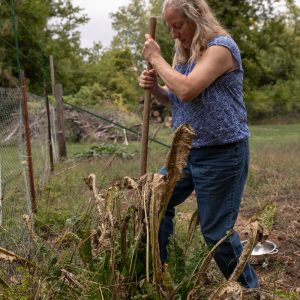
Most people associate midwives with delivering babies. Kayla Harajli, a Certified Professional Midwife at With Women Midwifery, based out of West Des Moines said their scope of care is much broader.
“It's not just delivering babies, because I know a lot of people just think about delivering babies and that is definitely a highlight of it, but we can really care for women throughout their lifespan,” Harajli said.
A licensed Certified Nurse Midwife can provide care for clients from puberty through menopause, Harajli said. Care can include, but is not limited to, annual physicals, preconception and contraception education, and birth.
Harajli said a majority of her non-maternal client load comes from those who were seen throughout their pregnancy and continued to seek care afterward.
“As you increase licenses, it's just going to increase access to midwives throughout Iowa,” she said. “I think as we have more midwives and have increased access to midwives, they will become more the norm.”
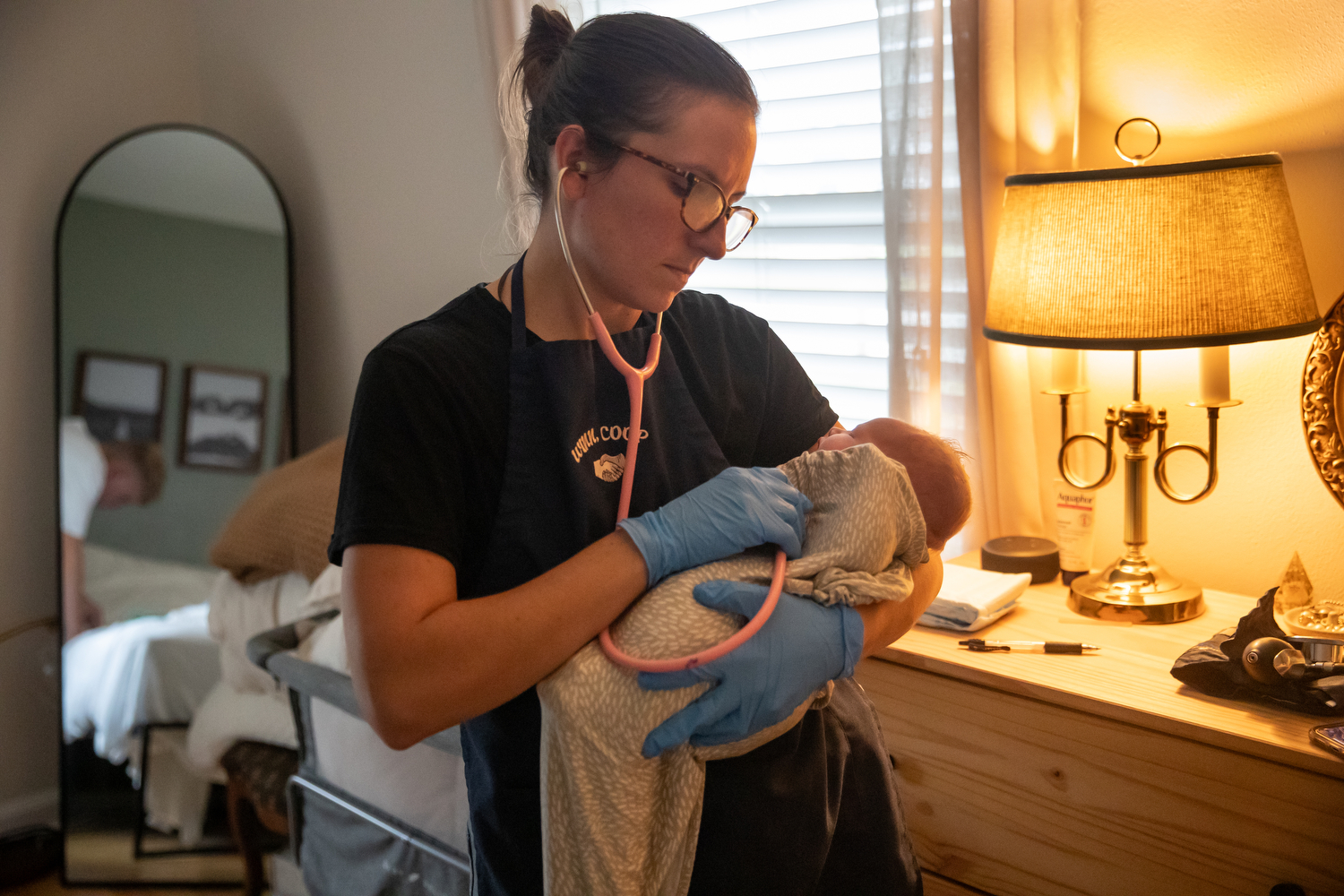
A path to midwife licensure in Iowa
Until June, Iowa was one of 15 states without a licensing process for Certified Professional Midwives. However, in June, House File 265 was signed into law requiring practicing midwives to obtain a license through the Iowa Board of Nursing beginning in July 2024.
CPMs, unlike Certified Nurse Midwives, practice mainly at home and are not required to have a nursing license. However, under the new legislation, they will have more eyes on their practice and standard of care through the creation of a Midwifery Advisory Council under the Iowa Board of Nursing.
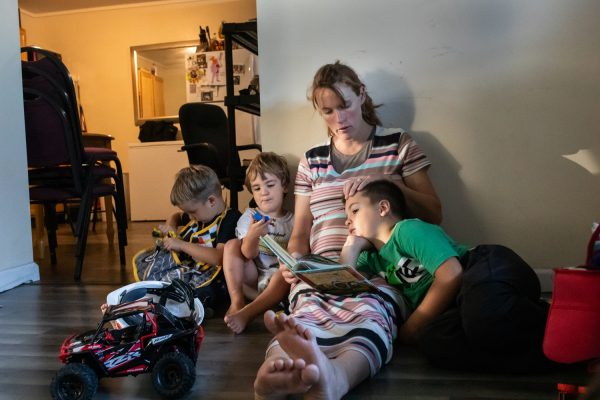
The council will advise the board regarding licensure, continuing education requirements, scope of practice, and other standards.
The law also allows midwives to order labs, ultrasounds, and certain medications, which they will also be able to administer to their clients. Weitz said some midwives are already doing this out of necessity for their clients, however, the law will make providing the proper care more accessible.
Weitz said the biggest change she expects to see with the new licensing process will be in the educational requirements and level of accountability, as all newly licensed midwives will have to go through the Midwifery Education Accreditation Council, a nationally recognized accrediting agency.
“Right now there is not much accountability if something happens. So it will hold the midwives accountable to a standard of care.” Weitz said. “[People] can go and say, ‘Hey, I have issues with a midwife,’ and the Board of Nursing will say to us, ‘Hey, this wasn't your standard of care.’”
Weitz said when she obtained her CPM license, she went through the portfolio evaluation process, one of many routes to licensure before the new legislation.
Prior licensing processes included:
- Attending an MEAC program or taking a skills test and going through the Portfolio Evaluation Program with the North American Registry of Midwives.”
- Getting a bridge certification.
- Holding a license in another state for two years.
Harajli, who has practiced since 2012, currently operates in a 90-mile radius around West Des Moines. She said the legislation will greatly impact maternal health care in Iowa.
“I think we all know that we had maternity deserts in Iowa, and there's a lot of people that live very long ways from maternal health care,” Harajli said. “Creating a license for a CPM and making them legal will encourage more people to become a CPM and become a midwife and provide those services.”
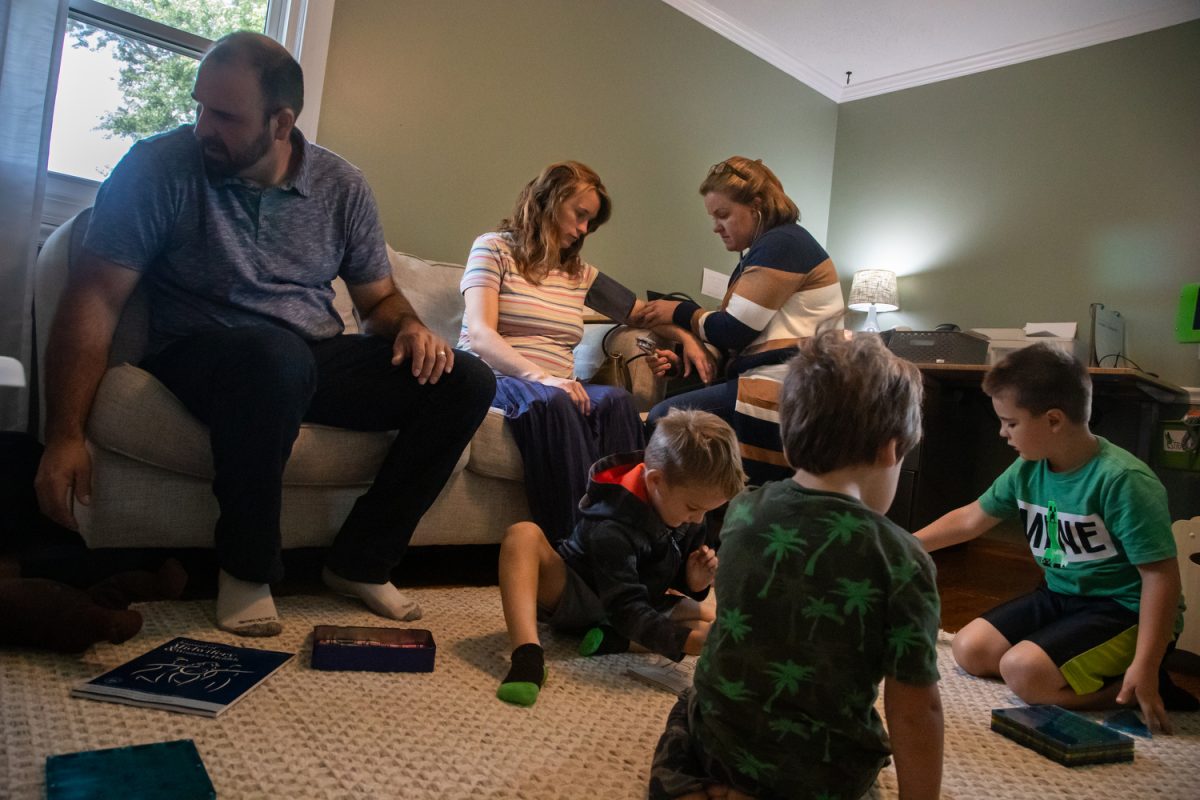
Supporters of this legislation include Iowa Rep. Bobby Kaufmann, R-Wilton, the bill’s floor manager, along with U.S. Rep. Ashley Hinson, R-Iowa, who has been active in the effort to increase maternal health care in Iowa through midwives.
Hinson hopes to make maternal health care a national conversation through proposed legislation.
In a press release on June 2, Hinson introduced a bipartisan act with New Jersey Rep. Bonnie Watson Coleman, D-Ewing. The Midwives for MOMS Act aims to expand access to midwifery in the U.S.
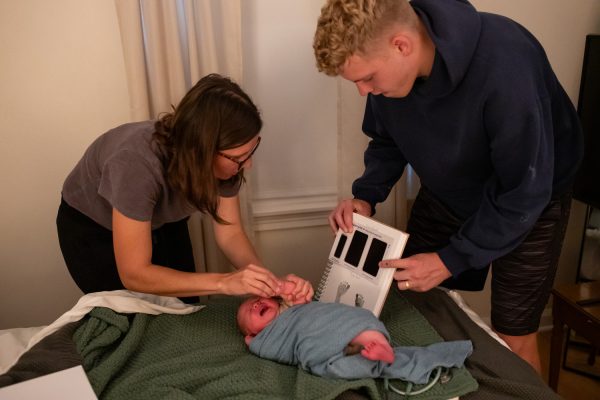
"Many women in rural Iowa have to drive over an hour to see their OB-GYN. With the growing maternity care provider shortage, increasing midwifery services is a proven way to help expecting moms get the care they need,” Hinson said in a press release.
As of 2021, the maternal mortality rate in the U.S. is 32.9 deaths per 100,000 births, according to the Centers for Disease Control. Iowa’s fetal mortality rate was 3.23 percent the same year, with maternal conditions being cited as the third most common fetal cause of death.
In a June press release, Coleman said these numbers are unacceptable in the U.S.
“It is inexcusable that the United States, the wealthiest nation on Earth, has such a high maternal mortality rate,” she said according to the press release. “Millions of women live in a maternity care desert – hundreds of thousands of babies are born to women living in counties with no access to maternity care.”
However, more direct licensing will not come at a small cost.
According to the Iowa Legislative Services Agency, the startup costs of establishing a new licensing board would require an estimated $149,000 in fiscal 2024. Ongoing costs are anticipated to be an additional $43,000 annually.
It has not taken long for this legislation to make an impact. In September, Iowa saw its first nurse-midwifery degree program at the University of Iowa Hospitals and Clinics.
The program is part of the Iowa Maternal Health Innovation Program, it is meant to be a five-year collaborative effort by the Iowa Department of Health and Human Services and UI Health Care to create more access to obstetric and gynecologic care in Iowa.
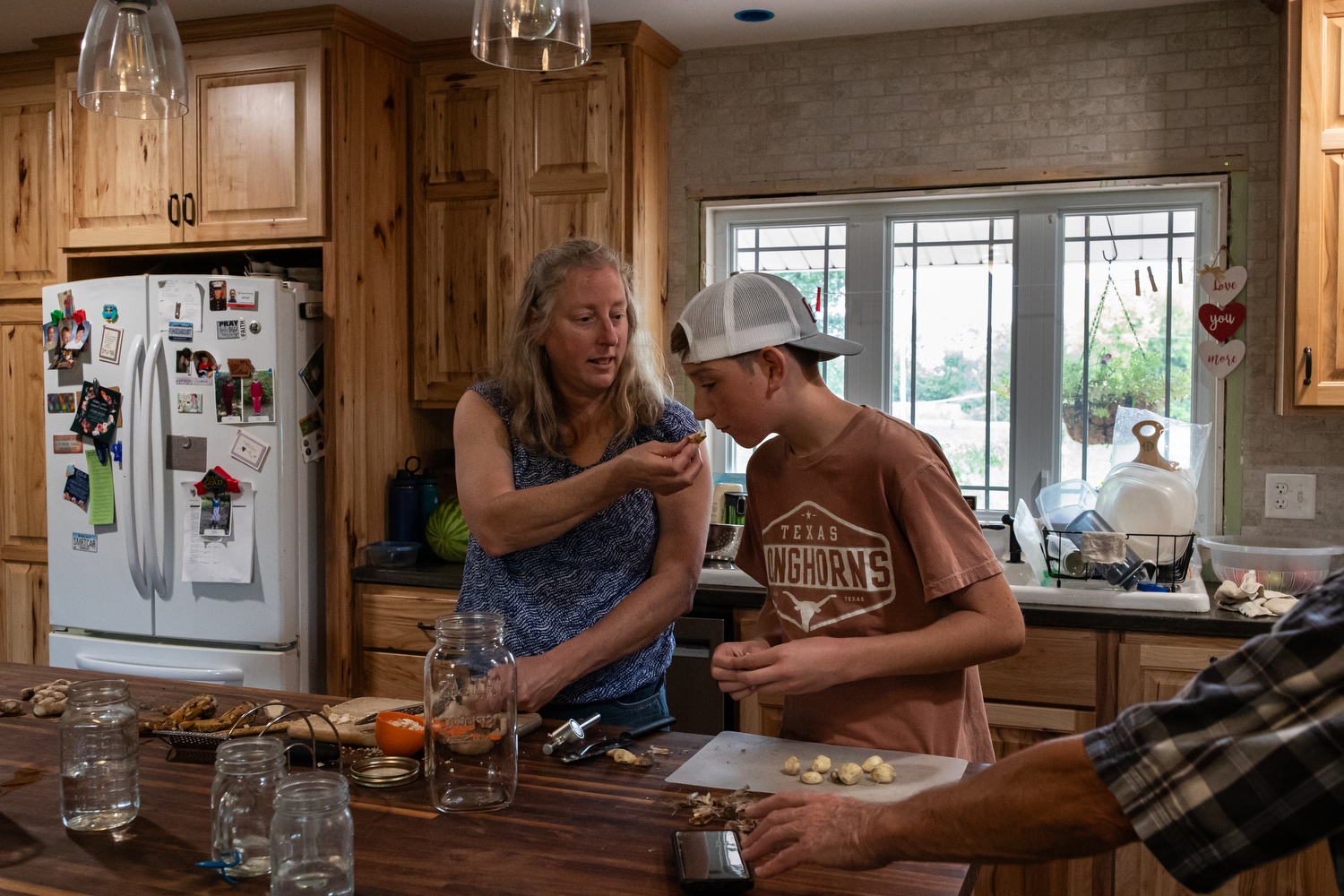
Life as a midwife
Being a home birth midwife means always being on call. Weitz said she has to have backup plans every day. The plans must consider how far away she is from her clients, whether she will have cell phone reception, and what she will do with her own children if she is called to a birth.
“Sometimes it affects your sleep if you know that a mama is just kind of tending toward labor. Sometimes you're a little more anxious,” Weitz said.
The Iowa midwife community is trying to combat the stresses of the occupation by working with those from other practices in the area to cover for each other.
Harajli said With Women Midwifery is in the process of creating a coverage agreement with other midwives in eastern Iowa, where if a midwife is unavailable, another could take on the care of a laboring mother. Currently, they work with another practice to guarantee at least five days off a month.
“It’s nice just because I can plan that on my kids’ birthdays, I know that I'm not going to have to rush out in the middle of cupcakes,” Harajli said.
Working with midwives
Megan Swanson gave birth to her first child in her and her husband James’ home in September. Weitz and Kubik served as Swanson’s midwives and provided care for her throughout pregnancy, delivery, and postpartum.
Swanson's interest in natural home birth began before her pregnancy. She did not come across Rooted in Love Midwifery until after her first obstetrics appointment where she was unsatisfied with the level of care that was provided. She said she felt rushed and didn’t receive the attention she felt was needed.
“I had only one appointment in an OB office and that one appointment I felt like was just really short,” Swanson said. “The OB came in and answered, like maybe one question that I had, and then was just kind of on her way to go to the next patient.”
Swanson said she first pursued clinical obstetrics because she did not know what her options were outside of a clinical setting.
At around 12 weeks of pregnancy, Swanson met with Weitz and Kubik. After that, she saw them every four weeks.
“They were my main care providers, and then they would refer me elsewhere if I needed an ultrasound or lab work done or anything like that,” Swanson said.
At the appointments, Weitz and Kubik would take her blood pressure, measure the baby, listen to her heart, and answer Swanson's questions.

Swanson said she felt the conversation was geared toward her health and well-being while working with a midwife.
“I think the fact that they were asking about me, how I was doing mentally, how I was doing physically, just made me feel like they cared more about me and not just the pregnancy,” she said. “They cared about me as a whole person. So I felt really close to my midwives.”
Much like with the Swansons, care usually begins at the end of the first trimester, 12 weeks, with an intake appointment, Weitz said. This appointment is when the financial agreement and consent forms are typically signed.
During a client's pregnancy, they will have around 12 visits with their midwife, starting with an office visit every four weeks until the 28th week, when the frequency steadily increases until around 36 weeks. That’s when the first home visit takes place.
“Oftentimes people are like, alright, we want to hire you and we're like, well, just go and think about it at least overnight and then get back to us,” she said. “Typically, people get back to us right away … we're the only nurse midwives in the area, so we typically are the ones that get hired.”
During the first home visit, midwives get to know the layout of clients' homes, including where they want to give birth so that they are prepared for whenever labor begins.
Weitz said they hope to have babies delivered by 42 weeks.
Swanson delivered her newborn son at 38 weeks. Her birth team included Weitz, Kubik, and one of their assistants, along with her doula — a trained professional who guides a mother through birth but does not provide medical care— and her husband.
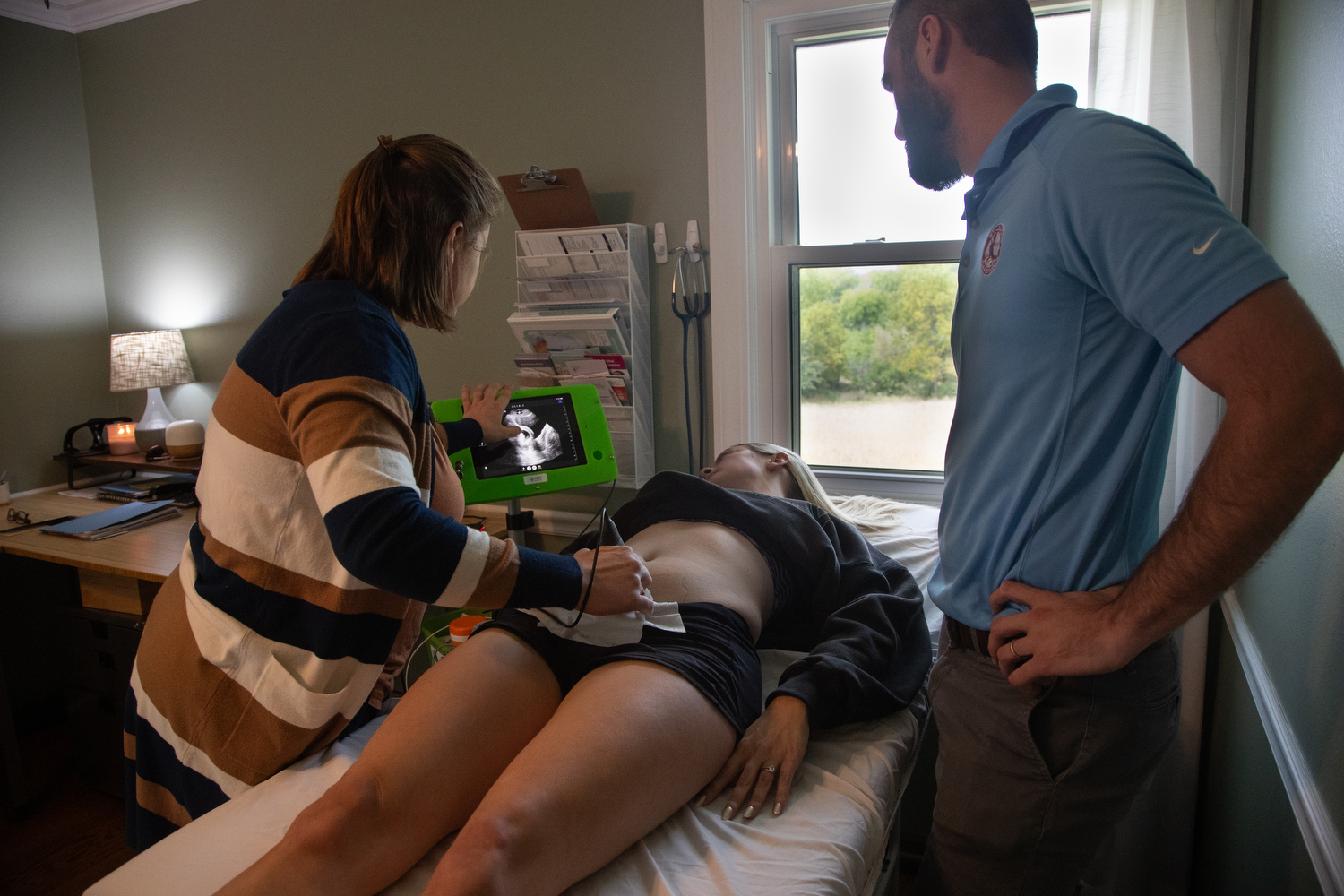
Navigating home birth
At the end of Swanson's pregnancy, she was faced with the potential of being transferred to a hospital because of high blood pressure.
“[Weitz and Kubik] always made it clear that that was potentially going to happen, and I appreciate their honesty,” she said. “I trusted them with my care and knew that they would do what was best for me.”
Home birth is typically a route for low-risk pregnancies like Swanson’s, Weitz said. Even with this being the case, things can change throughout delivery, she said.

When changes need to be made to the birth plan, Weitz respects the wishes of the mother but always puts the safety of mothers and their babies first.
“We have conversations with moms and partners and oftentimes are like, ‘Alright, let's just [go] two more hours and we will keep trying,’” she said. “It's like, yes, of course … but we also want to make sure that we're going in before you're completely exhausted.”
When a transfer is needed, Weitz will call the hospital and let them know she and the mother are on the way, or if emergency services are needed, place the call to the ambulance company.
During birth, Weitz said many things could turn a home birth into a hospital birth including:
- Fetal intolerance, or when the baby is not handling labor
- If a baby needs neonatal resuscitation beyond breaths
- Excessive bleeding during or after birth
Weitz and Kubik will provide postpartum care but also help clean up, do laundry, and check that the parent and baby are okay before heading home.
After birth, Weitz and Kubik returned to the Swanson family home for a wellness check 24 hours after birth. Typically they stay on call for clients for six weeks postpartum before seeing them for a closing visit. For the babies they deliver, midwives are allowed to provide care until the child is 28 days old.
“I just felt like the birth experience was so empowering. And I would do it all over again in a heartbeat,” Swanson said. “I just think that it's just really cool having a baby, the way that your body was designed to have a baby but also doing it in the comfort of your own home.”






